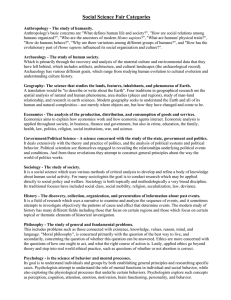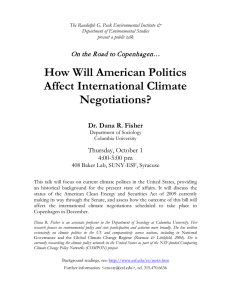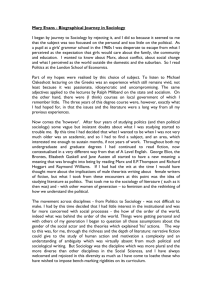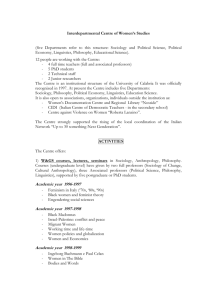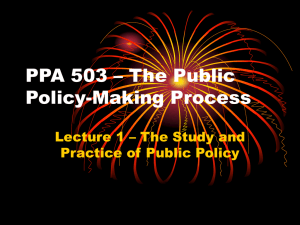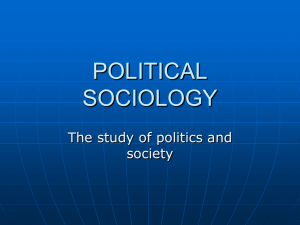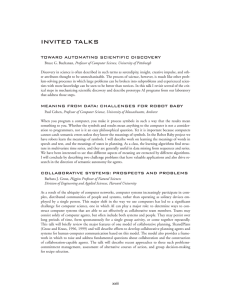Global political sociology as interpretation and critique
advertisement
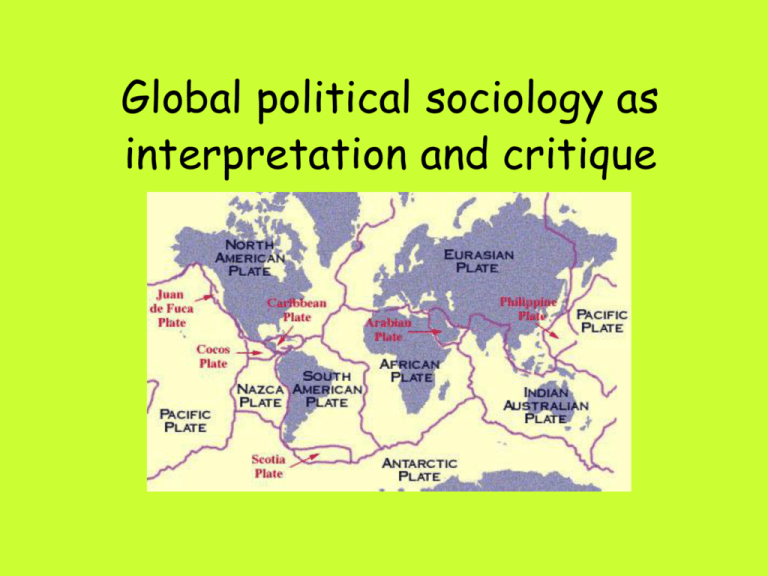
Global political sociology as interpretation and critique Waltz Made Simpler 3rd image; group relations; system 2nd image; group level; state 1st image; unit level; individual Character of the system determines state behavior Character of the state determines its behavior Character of the sovereign determines state behavior What is “political sociology?” 1. Assumes a. b. c. d. People have multiple motivations for action Meanings, culture, symbols matter Social structures constrain beliefs and actions People tend to “naturalize” beliefs & behaviors a. b. c. d. States are not identical units & act differently Sociological (unit & state level) factors matter Differences in cultures and meanings matter Power cannot be defined in simple terms 2. What does this mean for int’l politics? How does this apply to Lord of the Flies? 1. British class structure a. Historical origins of the class system b. Class in politics and economics c. Class system in war d. Class system in education 2. Public (aka, private) school system a. Rankings read off of clothing, caps, accents b. Public schools as system of socialization & discipline c. Public schools as sources of officer corps d. Public schools and nationalism 3. Naturalized social structures & relations a. Gendering & power relations i. In public schools & on the island ii. In the household b. Violence—direct and implied i. In language ii. In images & symbols iii. “Savage behavior”—not how British boys should behave c. Fear & paranoia of difference i. Of the unknown and the dark ii. Of the beast iii. Of each other 4. How do these factor into “politics?” a. b. c. d. e. f. g. h. Abuse of those whose class is lower Assumptions about who serves whom Threats of punishment for dissent Disrespect for those who are different Legalized theft of others’ possessions Tendencies toward oligarchy Reliance on violence when all else fails Destruction of the world to protect power

